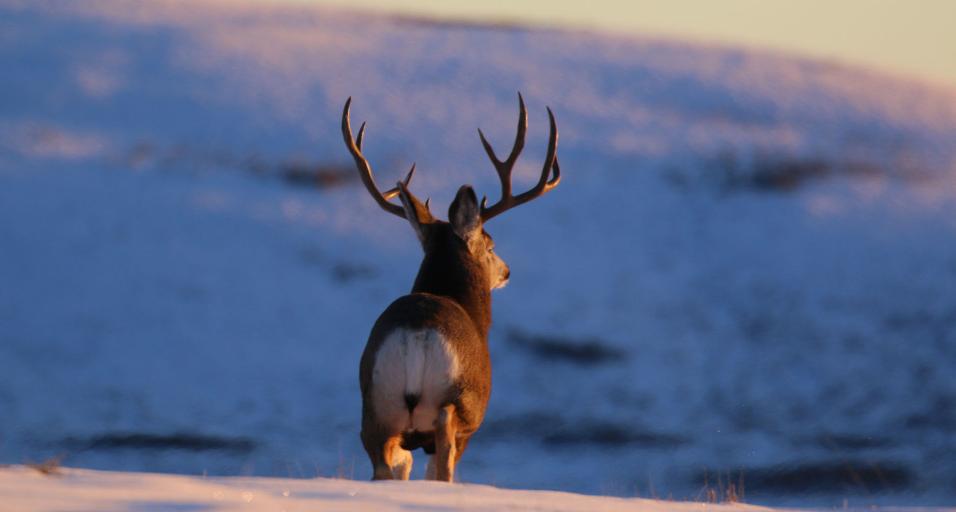Thayne Wildlife Biologist Gary Fralick, along with area game wardens, recently completed the annual post-hunt season deer survey for the northern half of the Wyoming Range mule deer herd that winters near LaBarge. This winter range supports a substantial portion of the renowned Greys River mule deer.
“Overall, the results of the survey were encouraging when compared to results being observed after the severe 2017 winter,” said Fralick. “The buck:doe ratio continued to rebound for the second consecutive year with a total of 41 bucks:100 does, which is a substantial increase from the 30 and 32 bucks:100 does observed in 2017 and 2018, respectively.”
High fawn survival after the 2018 winter likely led to the highest proportion of yearling bucks observed since 2015. “We expected buck ratios to bounce back once we had a couple years separating us from the 2017 winter, which resulted in a higher proportion of fawns surviving the winter and being recruited into the population,” said Fralick.
"This rebound in bucks observed on the LaBarge winter ranges bodes well for the upcoming 2020 hunting season in the Wyoming Range and Greys River, provided the winter weather and snow conditions continue to remain somewhat moderate over the next two months," said Fralick.
Similar to the incremental increase in buck ratios, the proportion of fawns observed during the recent survey also showed increases since 2017. The proportion of fawns:100 does increased from 45 and 58 fawns in 2017 and 2018, respectively, to 64 fawns:100 does in 2019. “It’s good to see a higher proportion of fawns on the winter ranges this year,” said Fralick. “since high winter mortality has typically been observed in the Wyoming Range herd on average about every three years since the 1980s.”
Fralick noted that conditions on the southern Wyoming Range winter ranges near Kemmerer, Cokeville and Evanston have been dramatically different than those on the LaBarge area winter ranges the past several years. “The deer on the southern winter ranges have been exposed to two tough winters, in 2017 and 2019 over the last three years,” said Fralick. “Those deer numbers, especially fawn recruitment, will lag a little behind the increase in deer numbers on the LaBarge winter ranges, but with a couple winters of high fawn survival, we anticipate the southern herd will respond with positive growth.”
In February of 2018, wildlife managers from the Jackson, Pinedale and Green River regions teamed up to do an exhaustive count of the entire Wyoming Range Deer Herd, which stretches from the Snake River Canyon near Alpine on the north to Evanston on the south. Well over 100 hours were spent in a helicopter covering over 1,600 square miles to perform the most comprehensive count of this herd ever done. A total of 25,300 deer were counted, and with the sightability correction factor, they were estimating the herd at 29,000 at that time.
With deer numbers still recovering after the winter of 2016-17, wildlife managers will likely continue to propose conservative hunting seasons for 2020 that will retain bucks in the post-hunt population by ending seasons prior to the onset of the annual fall migration when bucks are more vulnerable. “The road to recovery for this deer herd began the past two winters on several of the large expansive winter ranges in the Green River Basin,” said Fralick. “And it will continue to bounce back with successive years of mild winters and high fawn survival just like it has done over the last 35 years.”
Wyoming Range Mule Deer Surveyed
Mark Gocke, Public Information Specialist, 307-249-5811

